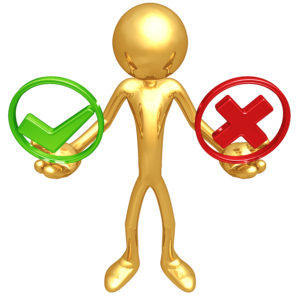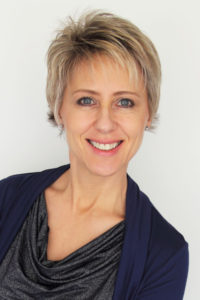 Written by co-leader of The Mentor Coaching Group, Karen Boskemper, PCC. Here’s where you’ll find more about Karen.
Written by co-leader of The Mentor Coaching Group, Karen Boskemper, PCC. Here’s where you’ll find more about Karen. 
In preparation for a Gender Equality workshop I’ll be leading for a client, I was recently doing some research on biases. I came across this fascinating statistic:
Did you know that less than 15 % of American men are over six foot tall, yet almost 60% of corporate CEO’s are over six foot tall? And furthermore, less than 4% of American men are over six foot, two inches tall, yet more than 36% of corporate CEO’s are over six foot, two inches tall.*
I was astounded by this information, and at the same time somewhere inside of me, there was a sting of recognition: That I too have biases towards others that influence the way I see them, and if left unchallenged, can have a significant impact on how I coach my clients.
Coaching Presence and Biases
A bias is a belief (or attitude) that we hold as being true, but in fact may be only one perspective. But is the belief we hold the ‘right’ or ‘true’ belief to have?
Coaching Presence is about being present to, and curious about what the client is saying and who the client is. It’s also being self-aware of our own biases at play in the dynamic. Too often coaches are limited by their own lack of self-awareness, and fail to see how their own perceptions, interpretations, preferences, and biases keep them from being completely open and objective with their clients.
The Expert Bias
As a Mentor Coach and ICF Assessor, the most prevalent bias I hear is “the expert bias”. This is particularly prevalent in coaches who have come from a consulting, teaching, training or advising background. Such coaches are often very experienced subject matter experts. In order to prove their value, they feel the need to give the client advice and direct them toward a result they feel the client needs to get to. The danger of this bias is that the client is not seen by the coach as fully resourceful with a lot of self-knowledge to draw on. Instead, the coach sees their client as being in need of their help and unable to get a result without their direction or advice.
The Real Expert
The real expert in any coaching relationship is the client herself. It is impossible for a coach to know everything about his client, even if he thinks he does. That’s the trap! As soon as he starts thinking, “I know this situation and therefore I know the solution,” he is trapped in his own bias or belief about what the client should do.
The ICF Core Competency to engage in to overcome this trap is Powerful Questions. Take time to ask probing questions. Be curious. Explore the client’s frame of reference from all angles, and be open to not knowing what might be the best way forward for this client.
The Similarity Trap
Another typical hidden bias is allowing similarity to influence how we select, or relate to the client. The purpose of bias (yes, there are positives too!) is to help us discern what’s safe or not, what’s acceptable or not, and whether somebody can be trusted or not. We have a tendency to trust people who are “like us” and therefore will tend to interact with them differently.
We all have our favorite clients and sometimes it’s because we can relate and identify with who they are. This bias, however, can get in the way of our objectivity (if it is possible for us ever to be fully objective!) and cause us to coach from a place of, “I know and understand you and how to best handle your situation,” versus, “I am curious about who you are today in our coaching session.” We are all evolving every day, so the client you “knew” last week is probably not the same client who shows up for the coaching session this week.
Ways to Recognize and Overcome Bias
Our patterns of belief are deeply ingrained, are unconscious, and impact the way we perceive others and how we view ourselves. In order to raise our effectiveness as coaches we need to be more self-aware about who we are “being” in the coaching session and how we are contributing to the client’s growth or lack of growth.
One way of overcoming bias in our coaching is to simply recognize and admit that it exists – in all of us to some degree. So, ask yourself these few questions before your next coaching session:
- What do I think I “know” about the client? How can I be sure that?
- How would I coach this client today if I didn’t know anything about them?
- What bias (beliefs, attitude) might be in the way of me doing my best coaching with this client?
- How would I coach today if I knew the client had all the answers?
- How would I discover my bias if it’s hidden from me?
So the next time you see a tall, short, fat, skinny person, notice your automatic bias and ask yourself where else that may be showing up in your life.
*Based on research by Timothy A. Judge, PhD, of the University of Florida, and researcher Daniel M. Cable, PhD, of the University of North Carolina.
Written by co-leader of The Mentor Coaching Group, Karen Boskemper, PCC. Here’s where you’ll find more about Karen.
Are you preparing for your first or next ICF Credential? Or do you want to “Sharpen the Saw” of your coaching skills?
The next Group Program commences
April 2015 and is open to all credential levels
Only ONE place remains!
Carly Anderson and Karen Boskemper offer an awesome mentor coaching group and individual program that has many exclusive offerings for our participants. Both have been trained by the ICF to assess using the new PCC Markers.
One of those offerings is an extensive library of MCC, PCC and ACC coaching sessions for our participants to listen to, evaluate, debrief, and learn from, along with The Target Approach to demystifying the ICF core competencies. These are incredibly valuable learning tools, and will accelerate your understanding of competency distinctions.
Here’s where you’ll find more about The Mentor Coaching Group
Carly and Karen also offer other mentoring options which you can find in the Store

